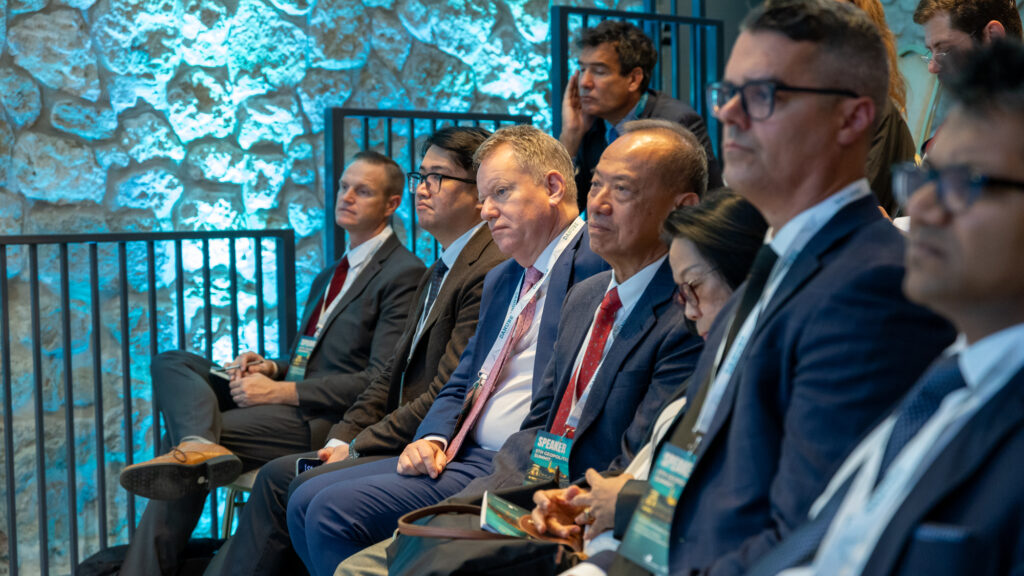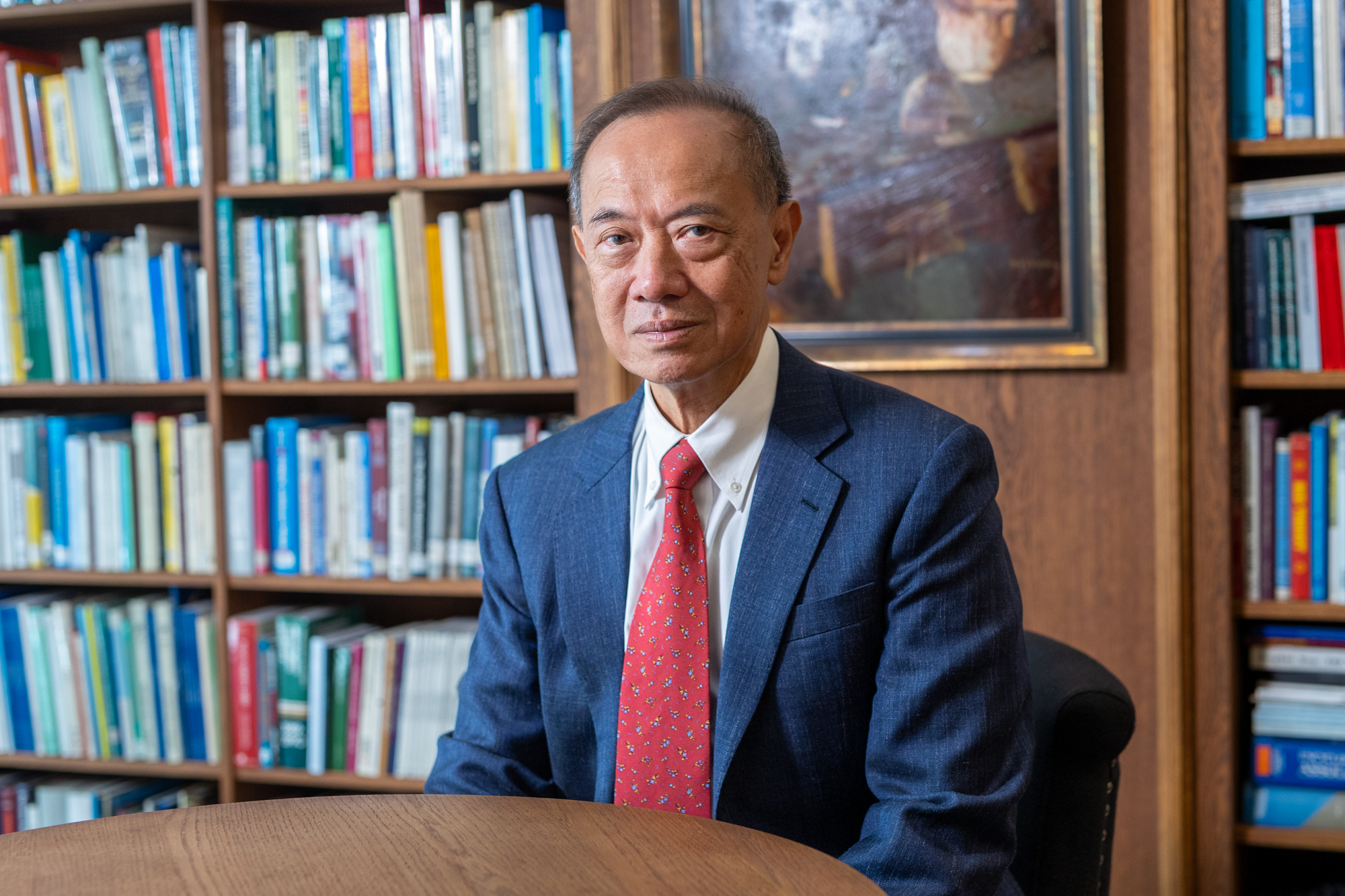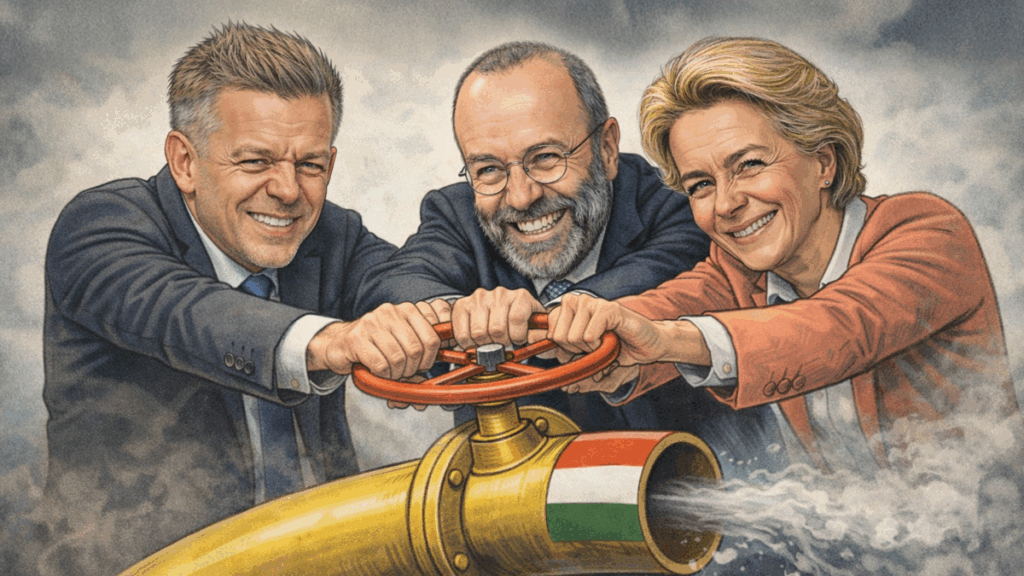George Yeo is a former Minister for Foreign Affairs of Singapore. Yeo graduated from the University of Cambridge, majoring in engineering, then completed an MBA degree from Harvard Business School. He served in the Singapore Army, attaining the rank of Brigadier-General, and in the 1980s he also served as Chief of Staff – Air Staff, and Director of Joint Operations and Planning at the Ministry of Defence. Yeo was a Member of Parliament between 1988 and 2011. He also served as Minister for Information and the Arts between 1990 and 1999, Minister for Health between 1994 and 1997, Minister for Trade and Industry between 1999 and 2004, and Minister for Foreign Affairs between 2004 and 2011.
***
At the Shanghai Cooperation Organization (SCO) meeting in Tianjin, we saw four leaders: the leaders of China, Russia, India, and North Korea. Did China form an anti-Western alliance?
SCO has a long history. It played a critical role in maintaining peace in the vast region of Eurasia after the collapse of the Soviet Union. Because of good diplomacy by Russia, by China and by Kazakhstan under President Nazarbayev, there was no revolution, no civil war, and that is very important. Since then, the SCO has grown in membership. North Korea is not part of it. We had Modi, Xi Jinping, and Putin, and they were holding hands and having a conversation and smiling at one another.
The most important signal is that China and India are normalizing their relations. The Americans were hoping, and to some extent, the Europeans too, that India could join them against China. This did not happen because India has its own core position. For example, when the Ukraine war started, America wanted India to support Ukraine, but India has a long relationship with Russia and will not disavow the Russians. Then, later on, earlier this year, the Indians and the Pakistanis had a small air war, and India wanted the Americans to support them against Pakistan. But the Americans won’t do it either. In fact, Trump invited the head of the Pakistani army to the White House for lunch, and he agreed to nominate Trump for the Nobel Prize. So each has his own interest to look after.
But it’s a very strong bond between America and India. And we know that in parallel, India also has a traditional relationship with Russia. Trump punished India with a huge tariff because India hadn’t given up buying Russian energy. Was the Indian participation in this summit an open defiance of the US?
Well, I don’t think you can bully India. India is too big. India is too proud to be bullied by Trump like that. And India has also come to the conclusion that it’s in its own interest, regardless of Trump, to normalize its relations with China.
‘The most important signal is that China and India are normalizing their relations’
And the Chinese have always wanted that. The process has begun. This represents the continuing crystallization of a multipolar world.
India traditionally had a neutral position, the policy of strategic autonomy. Do you consider the appearance of the Indian Prime Minister in Tianjin a geopolitical turning point?
It’s not that dramatic. It’s a combination of many months of diplomatic effort. The two of them had already met in Kazan at an earlier meeting, and this time around, Modi went back to China after seven years. So a lot of attention was paid to that visit, and the Chinese, of course, extended hospitality to him. That was reported positively all over India.
North Korea was there too. This state is a threat to all of Asia and an open military supporter of Russia in its war against Ukraine. What was the point of inviting North Korea to be in this company? What was the message of China with that?
China doesn’t consider North Korea to be a threat. After the Second World War, during the Korean War, China was completely on the side of North Korea, and with Chinese volunteers, they were able to drive the American-led UN forces back to the south. In the end, after prolonged negotiations, they had a ceasefire, which continues till today, a ceasefire without a peace agreement. When China opened up, it began to develop good relations with South Korea, but China always give a higher protocol standing to North Korea. The ambassador to North Korea has the status of a vice minister.
China lifts the North Korean leader up to this prestigious company of the Russian president and the Indian Prime Minister. Why?
China and North Korea have always enjoyed good relations, and China have always extended the highest courtesy to North Korean leaders. With Putin, it was interesting because North Korea sent a contingent to help Russia in Kursk, and they died there; they sacrificed their lives out of friendship with Russia. They have a treaty by which they help each other. This was on 3 September, the 80th anniversary of the end of the anti-Japanese war.
‘China doesn’t consider North Korea to be a threat’
China organized a very big parade, and Putin came. So did Kim Jong Un from North Korea, and he came by train. One step away, there was Tokayev from Kazakhstan and Prabowo from Indonesia, because when Xi Jinping announced the Belt and Road Initiative in 2013, he did it first in Kazakhstan and then in Indonesia. These two countries are very important for the Belt and Road. So it was a public display of China’s strategic worldview of friendship with Russia, North Korea, Kazakhstan and Indonesia.

The Siberia 2 gas pipeline will be built between Russia and China, and that was agreed in Tianjin, too. This project shows that Beijing openly supports the Russian war ambitions by strategically buying energy from Russia. China is not a neutral participant anymore, right?
China is trying to be very careful on Ukraine and has listed its principles. The first principle is territorial integrity. So that principle is a criticism of Russia. But the second principle is that security is indivisible. Your desire for security must not infringe upon mine. There is a criticism of NATO’s own expansion. Between Russia and China, they have a strategic friendship, partly because both come under pressure from the West. The Chinese fear that the West will work with Russia against China. But this will not happen. So, on the Ukraine war, China is very careful; it wants to have economic relations with Russia, not to be involved in military exports, highly controlled conduit use, and it keeps its relationship with Europe and with Ukraine.
‘The Chinese fear that the West will work with Russia against China. But this will not happen’
China’s position is not unlike India’s position. They try to be very careful and not take sides fully, but strategically, China does not want Russia to fall. If Russia were defeated, then China would face full pressure. It has a strategic interest in keeping Russia going economically, knowing further that Russia is able to look after its own military needs.
China’s most important strategic, military, political, and economic goals are concentrated in the Pacific region. Should the Pacific states, including your country, Singapore, be afraid of China these years?
For many centuries, the great strategic thinkers in China have worried about security from the north, from the west or from the sea, but never from the south. Southeast Asia has an old relationship with China; the countries of Southeast Asia will always pay tribute to China and show respect, but China never really invaded Southeast Asia. A few wars on the border, but nothing too serious, and today, Southeast Asia has a very good relationship with China. China is our biggest trade partner for all ten of us. No one wants China as an enemy. Americans put pressure on us to choose, but no one wants to choose against China. And I tell my American friends: Don’t push too hard, because the response may not be quite what you like.
So the ASEAN countries see the geopolitics in a different way than Japan, South Korea or Taiwan, right? They trade with China, and they are a bit dependent on Chinese goods. But what would happen if China wanted to expand its political influence in the South?
We’ve seen China in all its early incarnations. China is a predictable power. The current conflict with Southeast Asia is over maritime claims in the South China Sea because they overlap. Things have calmed down, but recently, with the Philippines, there’s been a problem. The Americans support the Philippines, which gives the Philippines more courage to take on the Chinese. I think it’s unwise, I think it’s best to settle these things by negotiation, but they’re complicated, and those of us who are not really involved should not get involved.
Hypothetically asking, if China, in ten years’ time, decided to use military means to resolve the Taiwan issue, would this change of status quo change your position, Singapore’s official position on China?
China would go to war with Taiwan if it were necessary. And the reason is because of historical justice. Taiwan was taken from China by Japan in 1894 when it defeated the Chinese navy. China felt that this was coercion. And towards the end of the Second World War, in 1943, leaders met in Cairo. Roosevelt was there, and Churchill, and General Chiang Kai-shek, and it was agreed that after the war, Taiwan would be returned to China. So China’s claim to Taiwan is not illegal. The One China principle was established by international agreements. Kissinger repeatedly re-negotiated it with Mao Zedong; they kept coming back to Taiwan in order to get China on board against the Soviet Union. America recognized Beijing as the sole legal government of One China. So, there is no doubt that Taiwan belongs to China.
‘China does not want Russia to fall. If Russia were defeated, then China would face full pressure’
The question is: even though China has the right to unify by force, does it want to? They don’t need to, because militarily, the US cannot prevent it from happening. If they try, Taiwan Semiconductor Manufacturing Company (TSMC) will be destroyed. If TSMC is destroyed, America and Europe will be without important chips. China has alternatives. The US cannot provoke a war on Taiwan, and China does not want a war in Taiwan unless it’s provoked by the US. I’m not worried about the war over Taiwan for the next five years.
Can the Taiwanese government declare independence in any situation?
No Taiwanese government can declare independence without American support.
You said that ASEAN, as a regional cooperation, is not a balancing power against, but a trading partner of China. Will your organization remain an economic alliance, or is there a chance that it will become more political in the future?
ASEAN is different from the European Union. You know, we never vote in ASEAN; in the European Union, they vote on everything, including the menu. We just discuss, we look after one another’s needs. If you can’t agree, we postpone it, we establish an expert group to get officials to study further, and we always work on consensus. It is a very Asian way of saving face, of overcoming difficulties. But the direction is clear that ASEAN should become more united, that we should not take sides, that we should be friendly to China, to Japan, to America, to Europe, to India, to anybody. But if anyone pushes too hard, then we will lean in the other direction. So don’t push us too hard. This is not in your interest. This is the ASEAN way. And because of that, ASEAN is a platform which is a very good convening platform.
‘I’m not worried about the war over Taiwan for the next five years’
We still have an ASEAN Regional Forum where North and South Korea, Japan, Russia and the US sit around the table to talk. You may disagree with one another, but here in ASEAN, we have to be polite to one another, and we talk to one another with respect. This is very powerful. When Trump met Kim Jong for the first time, that was in Singapore; the second time, it was in Hanoi. This is a special position. And when China first talked to Taiwan in 1992, it was in Singapore. The second time, in 2015, between Xi Jinping and Ma Ying-jeou, it was again in Singapore. This shows how useful we are.
A small country, but influential, right?
By serving others, not by dominating them.
I see. My last question. Can the SCO be the organization which is capable of energizing the formation of a real new Eastern bloc, including the BRICS countries, and the global South, being the leading force to create a new multipolar world order—a new reality?
Oh, very much so. The SCO states represent a part of the world that has a majority of the world’s population and is growing very fast. So in ten years’ time, the SCO economies will be big economies, and the BRICS will be even bigger. The idea is not to be anti-Western. The idea is to keep the West honest. So that the US cannot use the G7 or other international institutions to bully non-Western countries. It cannot be that, in the G7 or by the IMF, you make decisions and impose them on everybody, because now we have alternatives—whether in foreign exchange clearing, trade, energy security, and so on. For example, both Iran and North Korea are now connected to China and Russia, so the Western blockade against them can no longer succeed. This has huge implications.
Watch the full podcast below:
Strategically, China does not want Russia to fall | Danube Lectures
Listen on Spotify: https://open.spotify.com/episode/5tCG9wDnm4X3Ccg6phQcCt?si=ijDJh-R-RFq7TEEaVadCew 0:00 – Introduction 1:00 – Does China plan to form an anti-Western alliance? 3:58 – Was the appearance of the Indian Prime Minister at the SCO summit a geopolitical turning point? 6:10 – What was the point of inviting North Korea to the SCO summit?
Related articles:







